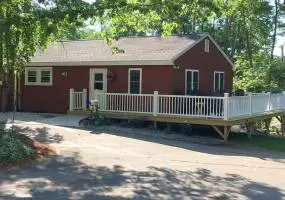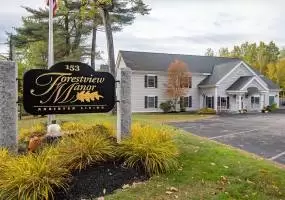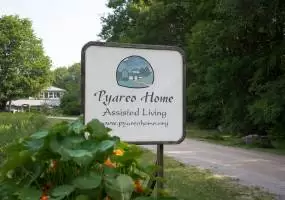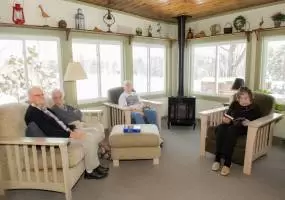![]()
The six levels of care in assisted living encompass a range of options tailored to meet the diverse needs of seniors. Understanding each level of care can assist individuals and their families in making informed decisions about their living arrangements. Here’s an overview of the six levels of care:
Table of Contents
ToggleShort-Term Care, Affordable Housing, and Independent Living:
Short-term care is suitable for seniors requiring temporary assistance during recovery from surgery or illness. It also offers respite for family caregivers and allows individuals to explore the facilities before committing to a long-term stay. Services may vary, with some facilities offering flexible stay durations.
Affordable housing provides budget-friendly accommodation for seniors capable of living independently. It typically includes amenities such as housekeeping, transportation, and planned activities but does not encompass medical services or personal care. Independent living offers similar amenities to affordable housing but may provide additional assistance if needed, such as extensive home maintenance and access to emergency medical care.
Assisted Living, Skilled Nursing, and Memory Care:
Assisted living offers round-the-clock supervision, meals, transportation, and social activities within a centralized setting, ensuring easy access to essential services. Residents receive personalized care and assistance with daily activities like medication management, grooming, bathing, and dressing.
Skilled nursing caters to seniors requiring temporary medical care following illness, injury, or surgery. Administered by licensed medical professionals, services may include medication administration, vital signs monitoring, catheter care, and IV therapy. Unlike nursing homes, skilled nursing facilities provide short-term care rather than long-term placement.
Memory care addresses the specialized needs of seniors with Alzheimer’s disease and dementia. Typically offered within secure units of assisted living or nursing homes, memory care provides enhanced security, increased supervision, and therapeutic programming tailored to cognitive impairments. Specially trained staff deliver compassionate care in a supportive environment conducive to the unique challenges of memory-related conditions.
By understanding the distinct features of each level of care, individuals can make informed choices aligning with their specific needs and preferences, ensuring a safe, comfortable, and supportive living environment.
NH Assisted Living By Region
- Bedford NH Assisted Living
- Manchester NH Assisted Living
- Portsmouth NH Assisted Living
- NH Seacoast Assisted Living
- Lakes Region Assisted Care NH
- Sunapee NH Assisted Living
- White Mountains
- Monadnock
- Great North
- What’s the difference between assisted living and nursing care?
- Community spotlight: active adult living
- Your Type – Active Adult Living
1 Click the map to find assisted care retirement near you
All American Senior Living in Kingston, NH 03848 | Assisted Living
Kingston, New Hampshire, 03848
All American Senior Living in Kingston, NH 03848 | Assisted Living
All American Senior Living in Kingston, NH 03848 | Assisted Living
Harvest Hill at 23 Alice Peck Day Drive, Lebanon, New Hampshire 03766
Lebanon, New Hampshire, 03766
Harvest Hill at 23 Alice Peck Day Drive, Lebanon, New Hampshire 03766
Harvest Hill at 23 Alice Peck Day Drive, Lebanon, New Hampshire 03766
Windham Terrace at 3 Church Rd, Windham, New Hampshire 03087 | Price $
Windham, New Hampshire, 03087
Windham Terrace at 3 Church Rd, Windham, New Hampshire 03087 | Price $
Windham Terrace at 3 Church Rd, Windham, New Hampshire 03087 | Price $
Beaver Lake Lodge at 38 North Shore Road, Derry, New Hampshire 03038
Derry, New Hampshire, 03038
Beaver Lake Lodge at 38 North Shore Road, Derry, New Hampshire 03038
Beaver Lake Lodge at 38 North Shore Road, Derry, New Hampshire 03038
Pine Hill at 35 North Lowell Road, Windham, New Hampshire 03087 | Pric
Windham, New Hampshire, 03087
Pine Hill at 35 North Lowell Road, Windham, New Hampshire 03087 | Pric
Pine Hill at 35 North Lowell Road, Windham, New Hampshire 03087 | Pric
Fairview Senior Living at 203 Lowell Road, Hudson, New Hampshire 03051
Hudson, New Hampshire, 03051
Fairview Senior Living at 203 Lowell Road, Hudson, New Hampshire 03051
Fairview Senior Living at 203 Lowell Road, Hudson, New Hampshire 03051
Covenant Living at 95 Wyman Road, Keene, New Hampshire 03431 | Price $
Keene, New Hampshire, 03431
Covenant Living at 95 Wyman Road, Keene, New Hampshire 03431 | Price $
Covenant Living at 95 Wyman Road, Keene, New Hampshire 03431 | Price $
The Courville at 44 W. Webster St, Manchester, New Hampshire 03104 | P
Manchester, New Hampshire, 03104
The Courville at 44 W. Webster St, Manchester, New Hampshire 03104 | P
The Courville at 44 W. Webster St, Manchester, New Hampshire 03104 | P
Langdon Place at 60 Middle Road, Dover, New Hampshire 03820 | Price $0
Dover, New Hampshire, 03820
Langdon Place at 60 Middle Road, Dover, New Hampshire 03820 | Price $0
Langdon Place at 60 Middle Road, Dover, New Hampshire 03820 | Price $0
Forestview Manor Parade Road, Meredith, New Hampshire 03253
Meredith, New Hampshire, 03253
Forestview Manor Parade Road, Meredith, New Hampshire 03253
Forestview Manor Parade Road, Meredith, New Hampshire 03253
Pyareo Home at 333 Brook Road, Sanbornton, New Hampshire 03269 | Price
Sanbornton, New Hampshire, 03269
Pyareo Home at 333 Brook Road, Sanbornton, New Hampshire 03269 | Price
Pyareo Home at 333 Brook Road, Sanbornton, New Hampshire 03269 | Price
The Golden Crest at 29 Baldwin Street, Franklin, New Hampshire 03235 |
Franklin, New Hampshire, 03235
The Golden Crest at 29 Baldwin Street, Franklin, New Hampshire 03235 |
The Golden Crest at 29 Baldwin Street, Franklin, New Hampshire 03235 |
2 Evaluating NH Assisted Living Communities










